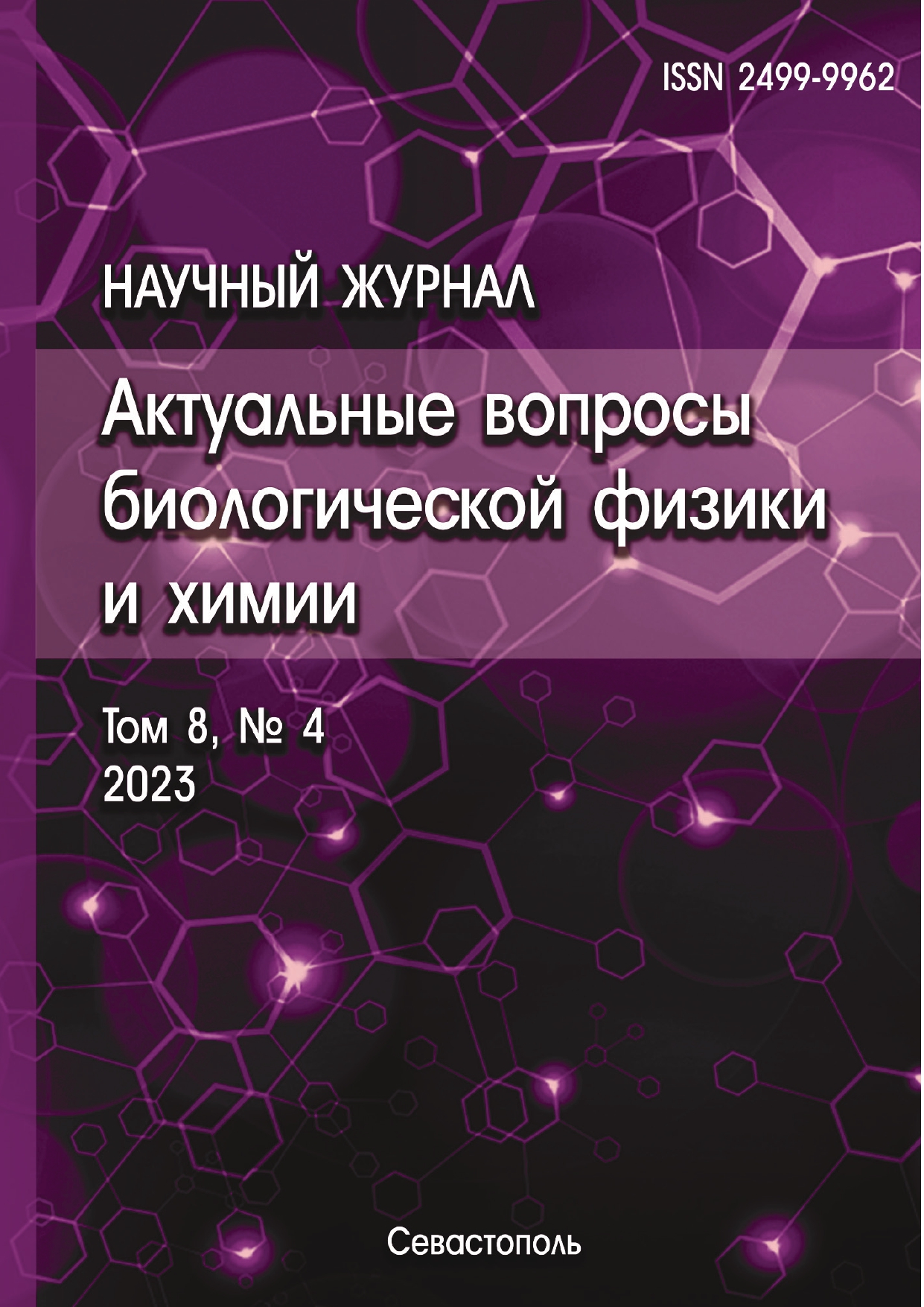Dubna, Moscow, Russian Federation
Dubna, Moscow, Russian Federation
Dubna, Moscow, Russian Federation
Interpretation of the growth of a malignant tumor and its response to therapeutic treatment requires consideration of its heterogeneity, taking into account the presence in it of a small subpopulation of tumor stem cells along with ordinary tumor cells. In present work, a mathematical model is proposed that combines two basic concepts of the theory of tumor growth - stochastic growth and the presence of a subpopulation of tumor stem cells. The model is a system of ordinary differential equations that describes the dynamics of subpopulations of tumor cells, taking into account different types of division and transitions between them. An important feature of the system is the maintenance of the equilibrium proportion of tumor stem cells in an unirradiated tumor using feedback. The model was used to interpret experimental data on inhibition of tumor growth after protons irradiation at a dose of 10 Gy only and the combined treatment of irradiation and the inhibitor of DNA synthesis AraC in laboratory mice with grafted melanoma B16. The effect of irradiation only and irradiation in combination with AraC is included in the system using a parameter describing the probability of loss of the cell's ability to successfully divide. As a result, the dependence of tumor volume on time calculated for cases without irradiation, after irradiation and after irradiation with AraC serves as a good approximation of experimental data, which makes it possible to evaluate the parameters of the system.
cancer stem cells, radiotherapy, protons, Bragg peak, radiosensitizers, ordinary differential equations, mathematical modeling
1. Mohan R., Grosshans D. Proton therapy - Present and future. Adv Drug Deliv Rev., 2017, vol. 109, pp. 26-44.
2. Reya T., Morrison S.J., Clarke M.F., Weissman I.L. Stem cells, cancer, and cancer stem cells. Nature, 2001, vol. 414, no. 6859, pp. 105-111.
3. Yang G., Xue F., Chen X. Prognostic value of different amounts of cancer stem cells in different molecular subtypes of breast cancer. Gland Surg., 2012, vol. 1, no. 1, pp. 20-4, doi:https://doi.org/10.3978/j.issn.2227-684X.2012.04.02.
4. Zamulaeva I.A., Matchuk O.N., Selivanova E.I. et al. Radiobiological Effects of the Combined Action of 1-β-D-Arabinofuranosylcytosine and Proton Radiation on B16 Melanoma in vivo. Phys. Part. Nuclei Lett., 2023, vol. 20, pp. 63-75.
5. Matchuk O.N., Orlova N.V., Zamulaeva I.A. Changes in the relative number of SP cells of melanoma line B16 after radiation exposure in vivo. Radiats Biol. Radioekol., no. 5, 2016, pp. 487-493. DOI: https://doi.org/10.7868/S0869803116050106; EDN: https://elibrary.ru/WOSFRD
6. Hu Z., Sun Y., Garen A. Targeting tumor vasculature endothelial cells and tumor cells for immunotherapy of human melanoma in a mouse xenograft model. Proc Natl Acad Sci USA, 1999, vol. 96, no. 14, pp. 8161-8166, doi:https://doi.org/10.1073/pnas.96.14.8161.
7. Sachs R.K., Hlatky L.R., Hahnfeldt P. Simple ODE Models of Tumor Growth and Angiogenic or Radiation Treatment. Mathematical and Computer Modelling, 2001, vol. 33, pp. 1297-1305.
8. Kimmel M., Axelrod D.E. Unequal cell division, growth regulation and colony size of mammalian cells: A mathematical model and analysis of experimental data. Journal of Theoretical Biology, 1991, vol. 153, no. 2, pp. 157-180.
9. Panyutin I., Holar S., Neumann R. et al. Effect of ionizing radiation on the proliferation of human embryonic stem cells. Sci Rep, 2017, vol. 7, p. 43995
10. Axelrod D.E., Kuczek T. Clonal heterogeneity in populations of normal cells and tumor cells. Computers & Mathematics with Applications, 1989, vol. 18, iss. 10p11, pp. 871-881.
11. Weekes S.L., Barker B., Bober S., Cisneros K., Cline J., Thompson A., Hlatky L., Hahnfeldt P., Enderling H. A multicompartment mathematical model of cancer stem cell-driven tumor growth dynamics. Bull Math Biol., 2014, vol. 76, no. 7, pp. 1762-1782, doi:https://doi.org/10.1007/s11538-014-9976-0. EDN: https://elibrary.ru/YBFSHZ
12. Gao X., McDonald J.T., Hlatky L., Enderling H. Acute and fractionated irradiation differentially modulate glioma stem cell division kinetics. Cancer Res., 2013, vol. 73, no. 5, pp. 1481-1490, doi:https://doi.org/10.1158/0008-5472.CAN-12-3429.
13. Phillips T.M., McBride W.H., Pajonk F. The response of CD24(−/low)/CD44(+) breast cancer-initiating cells to radiation. J. Natl Cancer Inst.98, 2006, pp. 1777-1785.










